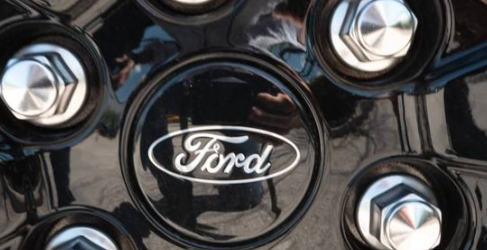- Jim Farley (CEO of Ford Motor Company): “We’re not just looking to participate in the electric vehicle revolution; we’re looking to lead it. Our commitment to electrification is about making electric vehicles accessible to millions of customers, not just a luxury few.”
- Bill Ford (Executive Chairman of Ford Motor Company): “The transition to electric vehicles is the biggest transformation of the auto industry in a century. At Ford, we’re fully committed to building a sustainable future with EVs at the core of our strategy.”
Ford Motor Company announced a strategic pivot on Wednesday, revealing plans to cancel its anticipated three-row electric SUV and delay the next-generation electric F-150 pickup. This decision underscores the automaker’s shift towards cost-cutting measures and a refined focus on its strengths, particularly in hybrid vehicles and commercial models.
More #EV delays: #Ford cancels plans for 3-row EV SUV (saying it wouldn’t be profitable), delays plan for full-size #EV pickup. Will build a hybrid 3-row SUV instead https://t.co/hPEAjg3l7X #cars #climate
— Franz Schneiderman (@franzsch2) August 21, 2024
The move comes as the electric vehicle (EV) market growth slows, prompting Ford, along with other major automakers like General Motors, to reconsider their investment strategies. Ford’s Chief Financial Officer, John Lawler, emphasized the need to adjust the company’s product and technology plans to ensure new models achieve positive earnings within their first year of launch. This approach reflects a broader industry trend of balancing investment in EVs with consumer demand.
While Ford is stepping back from some EV ambitions, it is simultaneously doubling down on hybrid technology. The company has seen a surge in hybrid sales, which offer a more accessible alternative to fully electric vehicles. Ford also revealed plans to introduce a new electric mid-sized pickup and van, reinforcing its strong presence in the pickup truck and commercial vehicle markets.
CEO Jim Farley has identified reducing production costs as critical to sustaining Ford’s competitiveness in the EV space, especially as rivals like Tesla and Chinese manufacturers continue to drive down prices. To this end, Ford has dedicated a specialized team in California to develop affordable EV architecture, with the first product, a mid-sized electric pickup, set to launch in 2027.
In a strategic move to cut costs further, Ford announced plans to relocate some battery production to the United States to qualify for federal incentives under the Inflation Reduction Act (IRA). This includes shifting production of batteries for the Mustang Mach-E from Poland to Michigan, and launching new battery manufacturing initiatives in Kentucky and Tennessee.
The company is also emphasizing lithium iron phosphate (LFP) battery technology, with production slated to begin in Michigan by 2026. Despite some political backlash over its licensing agreement with Chinese company CATL for LFP batteries, Ford confirmed that the terms of this partnership remain unchanged.
Ford Revises Its EV Plan: SUV Canceled, More Hybrids Coming https://t.co/MnJWCJlj8P
— autos-bot.fr (@SocialMedia_Car) August 21, 2024
Ford’s recent decisions signal a recalibration of its electrification strategy, with a renewed focus on cost efficiency and hybrid technology. The company plans to provide a comprehensive update on its progress in the first half of 2025.
Key Points:
i. Ford cancels three-row electric SUV and delays new electric F-150, focusing on cost-cutting and hybrid technology.
ii. The company plans to introduce a new electric mid-sized pickup and van.
iii. CEO Jim Farley emphasizes reducing EV production costs to stay competitive.
iv. Ford relocates battery production to the U.S. to qualify for federal incentives and lower costs.
v. Ford will provide an update on its electrification strategy in early 2025.
Susan Guglielmo – Reprinted with permission of Whatfinger News



